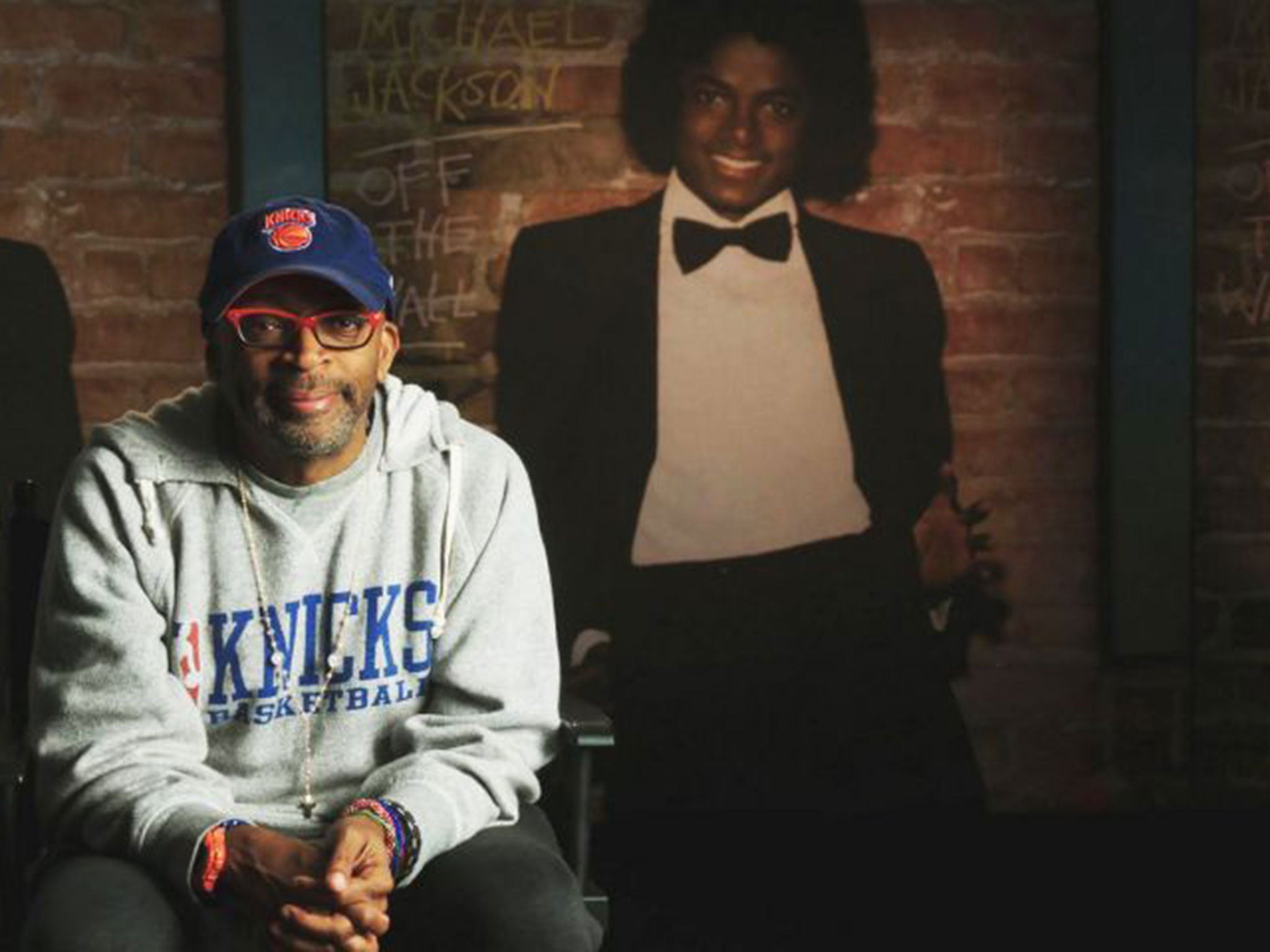Michael Jackson’s Journey From Motown to Off The Wall, review: Spike Lee dances to his hero's thrilling tunes
This is mainly a documentary of talking heads, but when they have faces like these it’s spellbinding

Your support helps us to tell the story
From reproductive rights to climate change to Big Tech, The Independent is on the ground when the story is developing. Whether it's investigating the financials of Elon Musk's pro-Trump PAC or producing our latest documentary, 'The A Word', which shines a light on the American women fighting for reproductive rights, we know how important it is to parse out the facts from the messaging.
At such a critical moment in US history, we need reporters on the ground. Your donation allows us to keep sending journalists to speak to both sides of the story.
The Independent is trusted by Americans across the entire political spectrum. And unlike many other quality news outlets, we choose not to lock Americans out of our reporting and analysis with paywalls. We believe quality journalism should be available to everyone, paid for by those who can afford it.
Your support makes all the difference.“Let’s give it all up for Michael, y’all” calls Spike Lee, minutes before his latest documentary, Michael Jackson’s Journey From Motown to Off The Wall, premiered at the Sundance Film Festival. With Lee taking up so much headline space over the Oscars diversity row, the stage needed to be cleared, even for a giant like Jackson.
Lee is doing more than any other filmmaker to document his hero’s legacy; two years ago Bad 25 was his exploration, track by track, of Jackson’s third solo album. From Motown to Off The Wall is part documentary, part tracklisting of each song from Off The Wall, which, released in August 1979, marked the last days of disco as well as Jackson’s long walk to becoming the most famous man in the world, which he achieved with the release of his next work, Thriller.
This is mainly a doc of talking heads, but when they have the faces of Stevie Wonder, Pharrell Williams, producers Mark Ronson and Rodney Jerkins, film director Lee Daniels and Michael Jackson’s own mother, it’s spellbinding. The journey of how the Jacksons went from a singing troupe with Motown to the disco beat of 1978’s "Shake Your Body" is peppered with record label anecdotes, made dynamic by the archive – including Jackson singing Ben at the Oscars in 1973.
What is clear is that Michael Jackson was no family stooge, but the driving force behind the Jacksons’ journey to superstardom. Each interviewee tells of his drive, even as a teenager, of his dedication to learning his craft, and his focus. "I will no longer be Michael Jackson, but MJ" a letter to himself reads in 1979. "I will dig in and dig in and dig in ..I will be a perfectionist.”
This overriding trait of Jackson, which possibly contributed to his later misfortune, is hammered home, but so his is sheer talent. His producer in 1978 recalls him bolting from the studio during a track and finding him dancing in a corridor. ‘I can’t keep still,’ the teenager apologised.
Most touching of all is Jackson’s youth, his beauty, his delicacy. Lee has unearthed footage of Jackson in Studio 54 in New York, when he had an apartment during filming of 1978 film The Wiz. MJ happily tells of how much he loves dancing there. Such was his innocence you can believe that’s all he got up to, but it’s striking: who knew Jackson ever got to go out and have a good time?
Someone calls the Off The Wall record sleeve Jackson’s prom picture; he’s a 20 year old in a tux, ready to make his next record, Thriller, the biggest album on the planet. Don’t let anyone fool you, Lee suggests, that’s not what he planned all along.
In 1980, MJ’s Grammy for Best RnB performance was presented off screen, during a commercial break. Off The Wall’s legacy was that labels and radio stations accepted the biggest star on the planet could be black. According to Pharrell Williams, the album was even more important than that: “He took black music and made it human music,” he says. “He didn’t see black or white.”
The Sundance Film Festival runs until January 31, 2016
Join our commenting forum
Join thought-provoking conversations, follow other Independent readers and see their replies
Comments